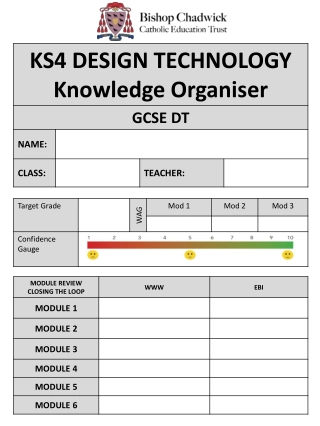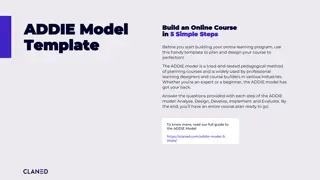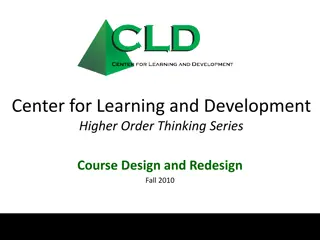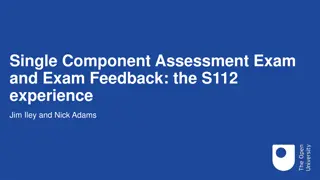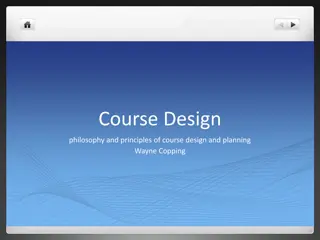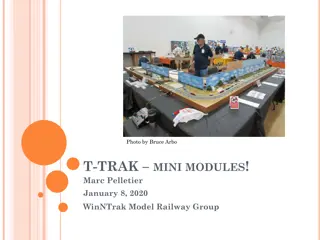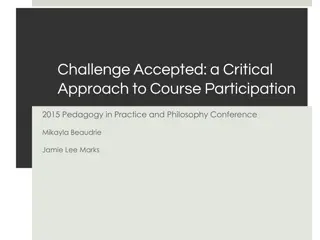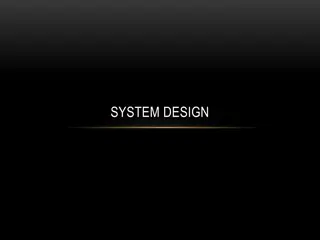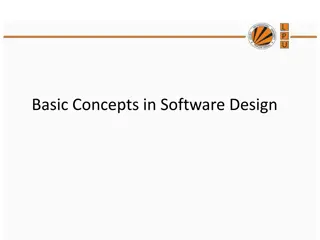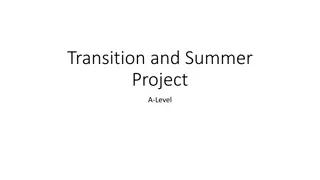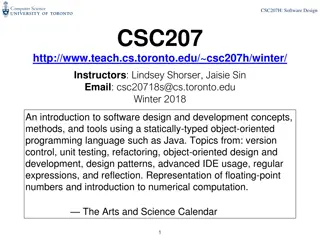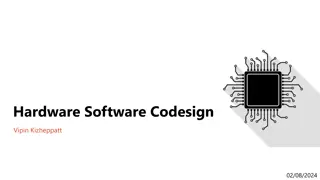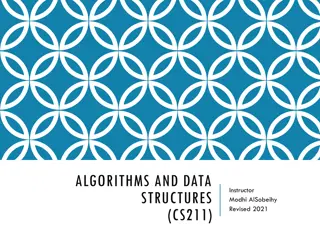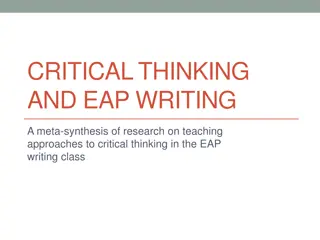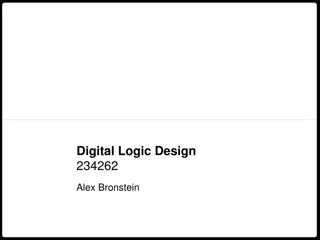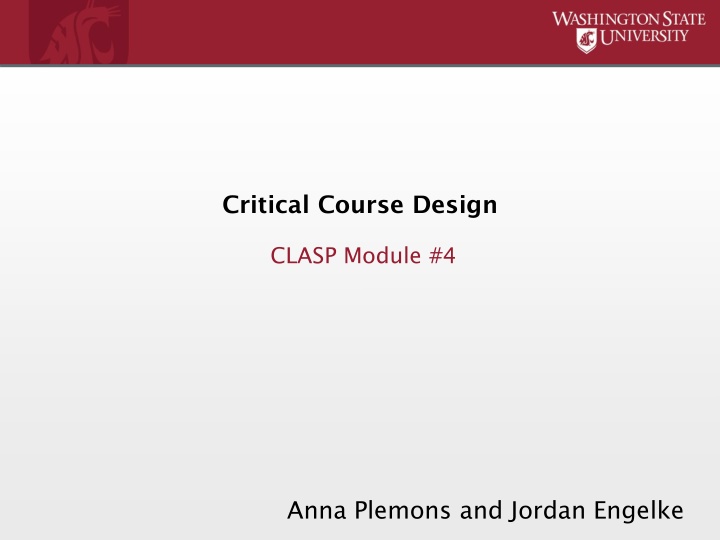
Critical Course Design and Pedagogy Insights
Explore key modules focusing on critical course design, pedagogy, and decolonial theory. Gain insights into collaborative learning, self-reflection methods, and embracing diverse perspectives within educational practices.
Download Presentation

Please find below an Image/Link to download the presentation.
The content on the website is provided AS IS for your information and personal use only. It may not be sold, licensed, or shared on other websites without obtaining consent from the author. If you encounter any issues during the download, it is possible that the publisher has removed the file from their server.
You are allowed to download the files provided on this website for personal or commercial use, subject to the condition that they are used lawfully. All files are the property of their respective owners.
The content on the website is provided AS IS for your information and personal use only. It may not be sold, licensed, or shared on other websites without obtaining consent from the author.
E N D
Presentation Transcript
Critical Course Design CLASP Module #4 Anna Plemons and Jordan Engelke
CLASP Project Outcomes 1. Method for self-reflection 2. Collection of best practices for classrooms
Review of Modules 1 and 2 Conversation about: The context-specific nature of markers of difference, e.g.: deafness is only a marker of difference around hearing people Intended, Learned, and Taught curriculum (Cuban)
Critical Pedagogy Teaching is inherently political Knowledge is not neutral Social justice and democracy are not distinct from teaching and learning Encourages students to perform social critique and political action Readings, assignments, and feedback structures that reject the deficit model, focus on student strengths, set high standards, and encourage multicultural perspectives
Decolonial Pedagogy Decolonial theory allows scholars to consider how the effects and complicities of historical and contemporary colonialism influence: Research and educational institutions Theories Methodologies Methods Scholarship Everyday embodied practices Haas (2015)
A Guide: Talk about stereotype threat on the first day Values writing activity Accessible syllabus design Rejecting the deficit model Deficit Model Does this make sense? Strengths-Based Model What questions do you have? Relies on personal strengths Teachers and students learn from each other Relies on outside, expert knowledge The teacher is all-knowing
Readings What kinds of readings would help a class become more decolonial, intersectional, or more critical?
Assignments How can you change or add to your current assignment sequence to make them meet the goals of critical course design?
Feedback Structures What kind of feedback sustains the deficit model? How can we provide feedback on student work that helps them improve while still being attendant to critical pedagogy?
Questions for Small Groups What examples have we seen of course design (readings, assignment sequences, feedback practices, etc.) that meets these standards? How can we adopt or adapt those examples into our own work?
A host of scholars study Indigenous and decolonial options in academic design: Maracle(1990) Hampton(1995) Atkinson(2001) Weber-Pillwax(1999) Mihesuah and Wilson (2004) Wilson(2008) Tuhiwai Smith (2012) Haas(2007, 2012) Arola(2013)
In the Next CLASP Module: Toward a CLASP Pedagogy: Module Review and Looking Ahead
References and Further Reading Larry Cuban, Curriculum Stability and Change (1992) Wendy Brown, Undoing the Demos: Neoliberalism s Stealth Revolution Shawn Wilson, Research as Ceremony (2008) Adrienne Rich, Contradictions Paulo Freire, Pedagogy of the Oppressed Frantz Fanon, Wretched of the Earth Kim Case, et al. Intersectional Pedagogy


